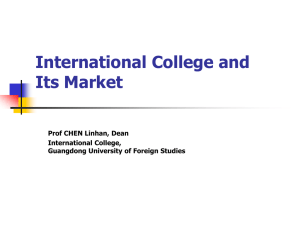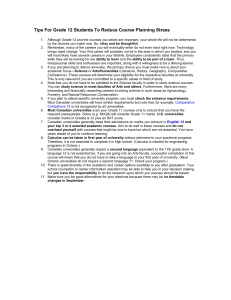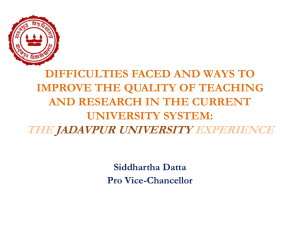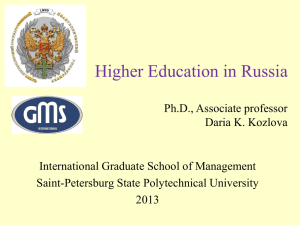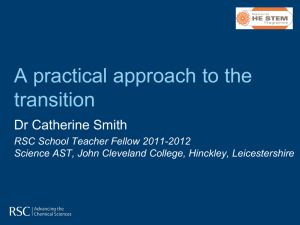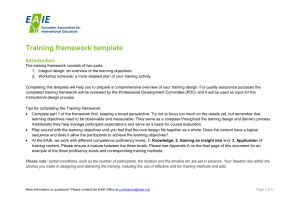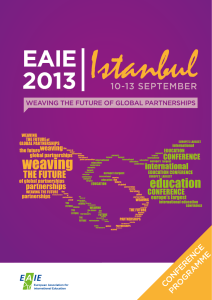2006 Basel Report - Association of International Education
advertisement
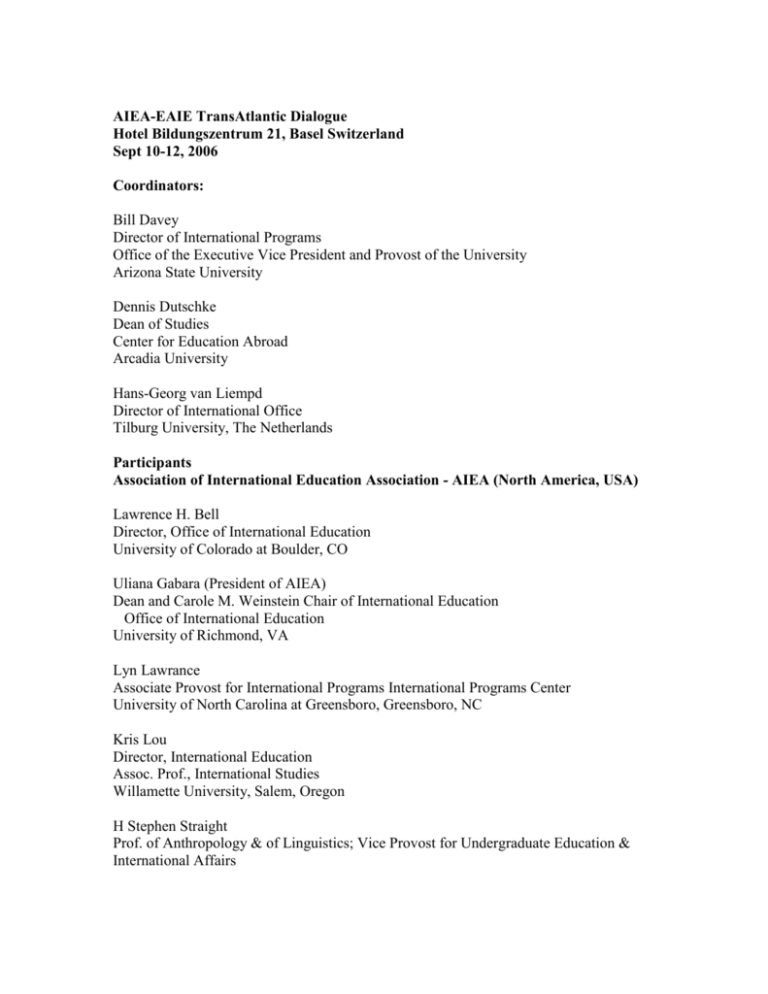
AIEA-EAIE TransAtlantic Dialogue Hotel Bildungszentrum 21, Basel Switzerland Sept 10-12, 2006 Coordinators: Bill Davey Director of International Programs Office of the Executive Vice President and Provost of the University Arizona State University Dennis Dutschke Dean of Studies Center for Education Abroad Arcadia University Hans-Georg van Liempd Director of International Office Tilburg University, The Netherlands Participants Association of International Education Association - AIEA (North America, USA) Lawrence H. Bell Director, Office of International Education University of Colorado at Boulder, CO Uliana Gabara (President of AIEA) Dean and Carole M. Weinstein Chair of International Education Office of International Education University of Richmond, VA Lyn Lawrance Associate Provost for International Programs International Programs Center University of North Carolina at Greensboro, Greensboro, NC Kris Lou Director, International Education Assoc. Prof., International Studies Willamette University, Salem, Oregon H Stephen Straight Prof. of Anthropology & of Linguistics; Vice Provost for Undergraduate Education & International Affairs Binghamton University, State University of New York Joseph D. Tullbane Associate Dean for International Education/ Director of the Center for International Education St. Norbert College, De Pere, WI Participants European Association of International Education - EAIE (Europe) Bjorn Einer Aas (Vice President of EAIE) University of Bergen, Norway Timo Ahonen Chair IRM EAIE Head of International Relations Lahti University of Applied Sciences Lahti, Finland John Andersen University of Copenhagen, Denmark Dr Robert Coelen Vice-President International Leiden University,The Netherlands Dr. Ursula Hans International Office Humboldt University, Berline, Germany Fiona Hunter (President of EAIE) Director of the Office of International Relations Università Carlo Cattaneo, Castellanza, Italy Antonio Luna Academic Coordinator International Study Abroad Program Universitat Pompeu Fabra International Campus Barcelona Spain Lene Rehder International Coordinator International Office Aarhus School of Business, Aarhus, Denmark Email: ler@asb.dk Antoinette Charon Wauters (President of EAIE) Head of International Relations University of Lausanne Lausanne, Switzerland Michael Woolf President Foundation for International Education London, UK Topics of discussion: Higher Education Systems in Europe and USA Brief introduction to the different systems Fiona Hunter spoke about the European Qualifications Framework: a new way to understand qualifications across Europe: http://ec.europa.eu/education/policies/educ/eqf/index_en.html The New Three-Year Degree in Europe Evolving status of the new degree program in Europe. Resistance to change by students, parents, faculty, universities. Effect on mobility of students, graduation, graduate studies, employability Differences between the European three-year degree and the American four-year degree; different secondary education, and General Education in the USA. Equivalence of three-year degree to the four-year degree in USA. Recognition of three-year degree for graduate studies in USA. Role of admissions offices and faculty in accepting three-year degree. Action Item: Statement to accrediting agencies (e.g. American Association of Collegiate Registrars and Admissions Officers - AACRAO: http://www.aacrao.org/) to encourage them to accept the three-year degree for graduate studies in the United States. Uliana Gabara wrote a draft statement. The Use of English as Lingua Franca in European Universities and the Marketing of Higher Education Predominance of English as teaching language in Northern Europe. Tension in universities, with concern about losing national language. American students need to study language and culture on study abroad. Joint, Dual, Double, Shared Degrees, and Collaboration between European and American universities General discussion describing the different types of mutual degrees. Very few joint, double, shared degrees (SUNY Binghamton and Turkey). Double degrees are easier than joint degrees: Indiana Univ. and Germany; St. Norbert and Japan; double degree (masters level) between Tilburg University and Bilkent University (Turkey). And as an example of national and university legal restrictions you can add that in the Netherlands it is not allowed to have a joint degree diploma (yet). Challenge of finding a bench-mark institution as a partner. National and university legal restrictions. Advantages to students: two degrees instead of one, more educational and research opportunities. Advantages to universities: more educational and research opportunities; pool resources; prestige of partnership. Action Item: Guidelines for joint, dual, double, shared degrees, with examples, to be posted on the TransAtlantic Dialogue website. Course Equivalences and Grading for Students Studying Abroad The Bologna Process, and European Credit Transfer System (ECTS): mobility of students within Europe and with USA. Challenges in converting credit and grades for American colleges and universities. Variety of ways that American universities grant or do not grant credit and grades for study abroad. Role of international offices in granting credit and grades. Importance of institutional linkages and collaboration in learning about educational systems, gaining trust and confidence to grant credit and grades. Role of faculty and staff exchanges for student exchanges. Assessment tools and quality review (American Council on Education, Forum) Action Item: expand the networking of the TransAtlantic Dialogue to educate universities about their academic programs. Research and Collaboration between European and American Universities Combine research with educational student mobility. Alliance of research universities that focuses on research and education for undergraduate and graduate students, including mobility of faculty and students. Alliances may include business and corporate partners. Major federal research grants in the USA require educational exchange of students. Health, Safety and Liability in Study Abroad and Exchanges Different approaches by Europeans and Americans. There is a general understanding that universities (in USA and Europe) need to have a health/safety policy. There is a legal and moral responsibility. Communication is important between USA and European partners, to ascertain what is possible with regards to health and safety. Health and safety issues must be part of the collaboration/exchange between European and American universities.

